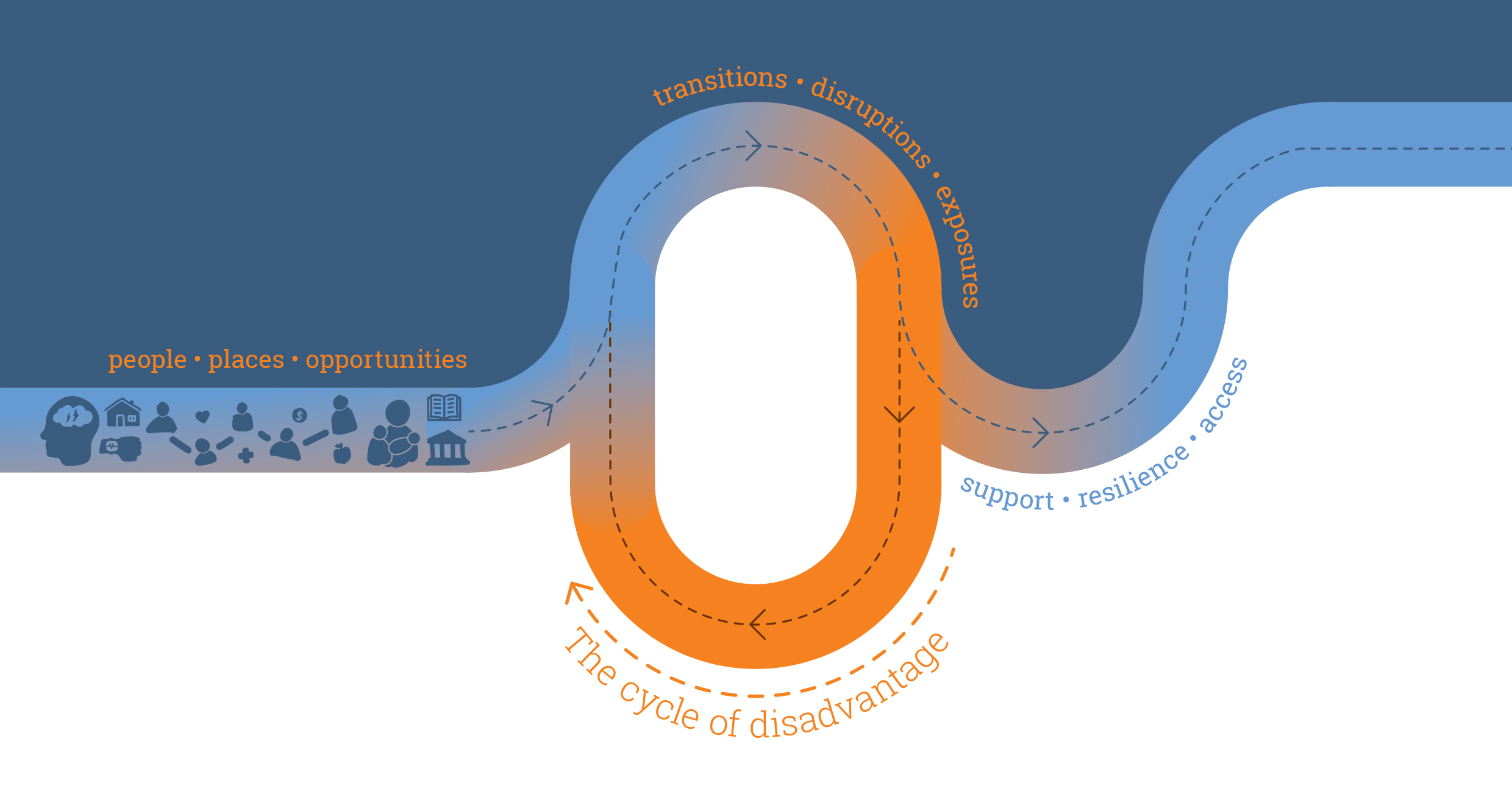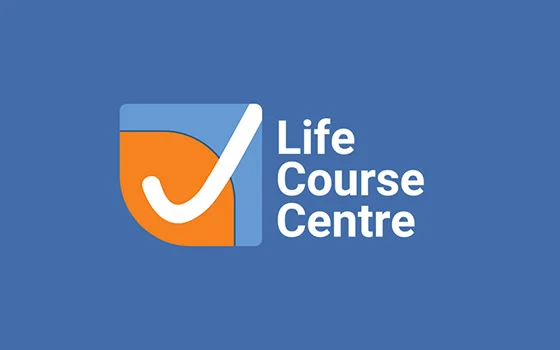The The Kids team have an important role in the new Life Course Centre developing solutions for vulnerable children and their families to ensure their journey across the life course is the best it can be.
The Kids researchers seek to
- Develop innovative and sophisticated new methodologies to quantify the impact of the neighbourhood physical environment.
- Understand what services families want and need in the early years of a child’s life so they can develop and evaluate interventions for disadvantaged communities
Associate Professor Francis Mitrou is the WA Director and Associate Professor Hayley Christian is leading the Knowledge Transfer Portfolio for the Centre.
We are proud to be a part of this Centre and excited about the opportunity to collaborate with experts from other disciplines. Our team is committed to bringing the perspectives of communities and front-line service providers into research at the Life Course Centre, then working together to develop solutions for vulnerable children that change their life course trajectory
Who are we?
The ARC Centre of Excellence for Children and Families over the Life Course (Life Course Centre) was established in 2014 to tackle deep and persistent disadvantage (multi-generational poverty) in Australia.
The life course approach entails looking at critical life points (such as early childhood, schooling, transition to employment, marriage, parenthood, divorce, or retirement), to identify those points at which life circumstances have the biggest and most lasting impact—positively and negatively. In 2019 we were awarded funding for an expanded Centre for another seven year period, starting in 2021.

The Life Course Centre’s aims and objectives
Up to 3 million Australians live below the poverty line, including nearly 750,000 children. It takes four generations, or more than 100 years, for Australian children who are born into low-income families to reach an average income, based on average parent to child mobility rates, and children born into families with a history of receiving income support are almost twice as likely as their more advantaged peers to need social assistance. Deep disadvantage persists across generations, resists simple solutions, and is experienced by individuals and families in a diversity of ways.
The Life Course Centre drives innovations in research and practice to respond to the multi-faceted and deeply personal transitions, disruptors, and exposures that characterise deep disadvantage as a wicked societal problem. Current solutions to disadvantage, even at the international leading edge, are based on methods of social intervention that average needs and responses across large population cohorts. Research from the Life Course Centre and its collaborators, however, has challenged the imprecision of using conventional population averages to measure and understand intergenerational disadvantage because it masks differential, and sometimes conflicting, trends within specific social groups and strata.
The Life Course Centre aims to deliver transformative research and translation to break the cycle of deep and persistent disadvantage for Australian children and families.
Our objectives support this vision
Design personalised and community-based solutions, informed by life course theory and enabled through the diverse disciplines brought together in the new Centre.
Demonstrate international leadership in advanced research and social interventions to address disadvantage in ways that are truly responsive to individual need.
Build on the unprecedented systems and data access for the study of disadvantage made available through the inaugural Life Course Centre.
Extend developments in national policy-making through new collaborations that support evidence-informed action on
the ground to address disadvantage. Build Australian capacity and capability through training in life course analytics and interventions for early career researchers, supported by leading international scholars and cross-sector external partnerships.
The Life Course Centre is a national centre funded by the Australian Research Council Centre of Excellence Scheme. Hosted through the University of Queensland, the University of Western Australia is one of the collaborating Universities that comprise the centre. Staff at The Kids Research Institute Australia and UWA participate in a range of funded projects with the Life Course Centre.
The Kids LCC Projects
Understanding the reasons behind student absences
A student’s learning potential is limited if they do not attend school regularly.
Time investment and child development
This project aims to explore how Australian children spend their time over an extended and important period of their lives (from birth to 16/17 years old) and how such time allocation contributes to their development outcomes.
The Effects of Interpregnancy Intervals, Family Size & Sociodemographic Factors on Child Development Outcomes at Age 5
This project will investigate the effects of the time interval between pregnancies (interpregnancy interval), family size and other sociodemographic factors on child development outcomes at age five.
The effectiveness of a Consumer Centred Tobacco Management (CCTM) approach in enabling mental health consumers to reduce or quit smoking
The aim of this pilot study is to test if the CCTM approach is more effective than business as usual methods at supporting mental health consumers to reduce their tobacco dependence or quit smoking altogether.
Student achievement against national minimum standards for reading and numeracy in Years 3, 5, 7 and 9
This project will examine how the categorisation of NAPLAN scores into bands affects the learning progress of low-achieving students.
Pathways between racial discrimination and the health and wellbeing of Aboriginal and Torres Strait Islander children and young people
This PhD project aims to examine the associations and causal pathways between racial discrimination and the health and wellbeing of Aboriginal children and young people aged 0-17 years.
NEET in Australia: Characteristics of Social Security Payment Recipients who are Not in Employment, Education or Training (NEET)
Australian adults who are Not in Employment, Education or Training (NEET) represent a significant proportion of income support recipients, yet little is known about them.
Multigenerational disadvantage in Australia
This study aims to examine the experience of multiple disadvantages in two generations of Australian families, and how these experiences relate to the trajectories of children, the third generation.
LCC Flagship in Educational Equity. Using integrated administrative data to improve educational equity over the life course. UWA component - Evaluation of the Adult Migrant English Program
This project seeks to better understand the broader impacts of the AMEP on migrant outcomes.
Data for policy
The ultimate goal of this project is to enable policy-makers and researchers to work together to influence positive changes in the life trajectories of disadvantaged Australians via research driven policy initiatives.
August 2020
Bilingualism, Parental English Skills and Child and Adolescent Development
This project will provide important policy directions for design of language educational programs in Australian schools, developing a multi-cultural society, multi-lingual workforce, sourcing of immigrants from different language backgrounds and English abilities in order to obtain the best developmental outcomes
A data infrastructure for improving Aboriginal life pathways: the influence of health, education, child protection and justice systems over time and across generations
Incarceration represents a source of ongoing socioeconomic and health inequity between Aboriginal and non-Aboriginal populations, limiting life changes and opportunities.

